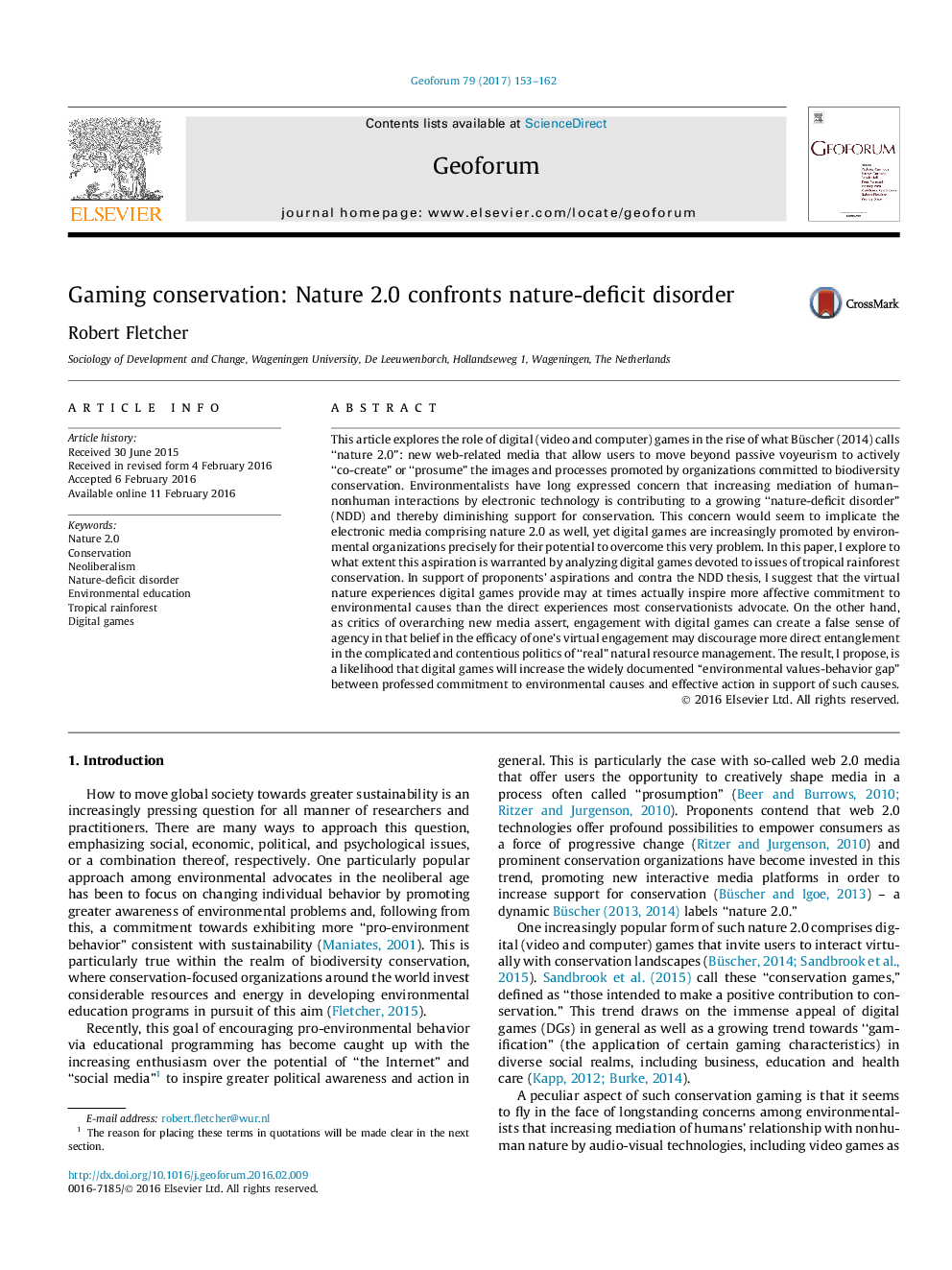| کد مقاله | کد نشریه | سال انتشار | مقاله انگلیسی | نسخه تمام متن |
|---|---|---|---|---|
| 5073421 | 1477110 | 2017 | 10 صفحه PDF | دانلود رایگان |
- First in-depth exploration of role of digital games in biodiversity conservation.
- First exploration of digital games in the context of nature 2.0.
- Problematizes the popular “nature deficit disorder” (NDD) thesis.
- Highlights the use of digital games to address a problem blamed on digital media.
This article explores the role of digital (video and computer) games in the rise of what Büscher (2014) calls “nature 2.0”: new web-related media that allow users to move beyond passive voyeurism to actively “co-create” or “prosume” the images and processes promoted by organizations committed to biodiversity conservation. Environmentalists have long expressed concern that increasing mediation of human-nonhuman interactions by electronic technology is contributing to a growing “nature-deficit disorder” (NDD) and thereby diminishing support for conservation. This concern would seem to implicate the electronic media comprising nature 2.0 as well, yet digital games are increasingly promoted by environmental organizations precisely for their potential to overcome this very problem. In this paper, I explore to what extent this aspiration is warranted by analyzing digital games devoted to issues of tropical rainforest conservation. In support of proponents' aspirations and contra the NDD thesis, I suggest that the virtual nature experiences digital games provide may at times actually inspire more affective commitment to environmental causes than the direct experiences most conservationists advocate. On the other hand, as critics of overarching new media assert, engagement with digital games can create a false sense of agency in that belief in the efficacy of one's virtual engagement may discourage more direct entanglement in the complicated and contentious politics of “real” natural resource management. The result, I propose, is a likelihood that digital games will increase the widely documented “environmental values-behavior gap” between professed commitment to environmental causes and effective action in support of such causes.
Journal: Geoforum - Volume 79, February 2017, Pages 153-162
